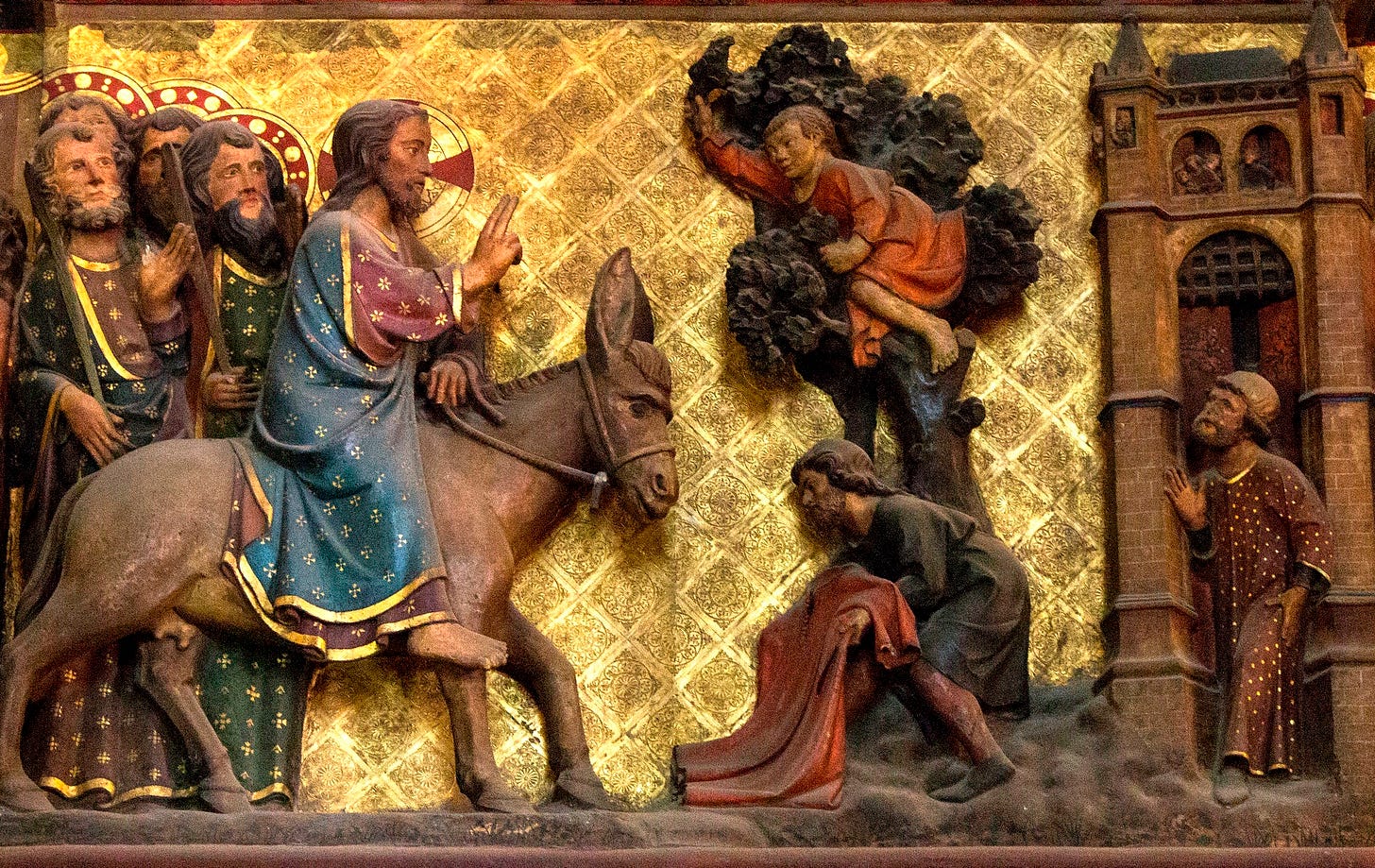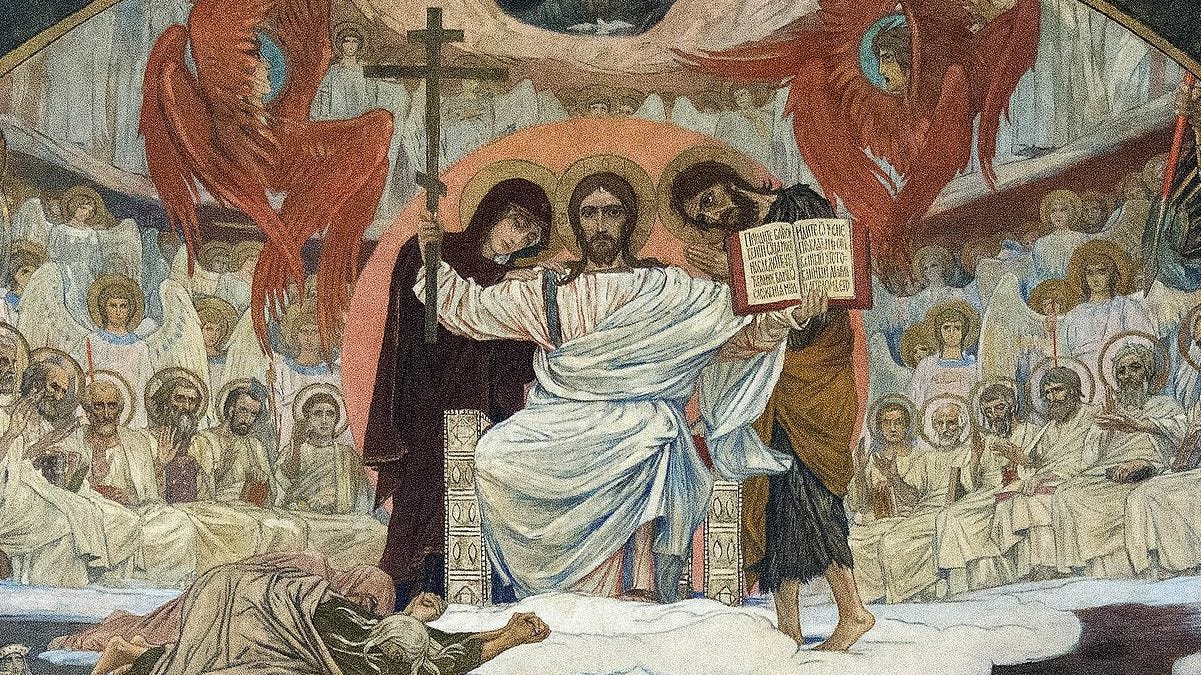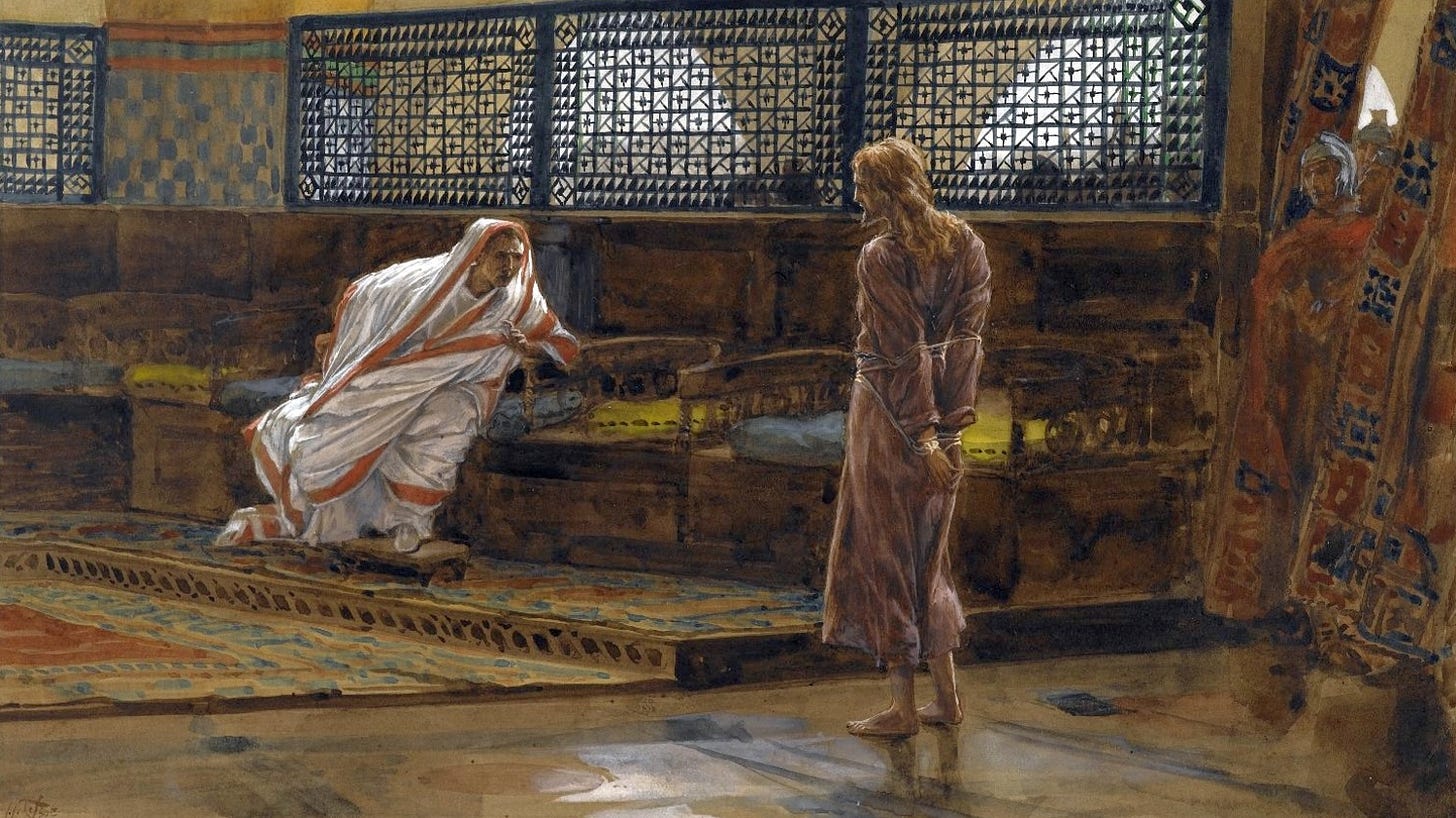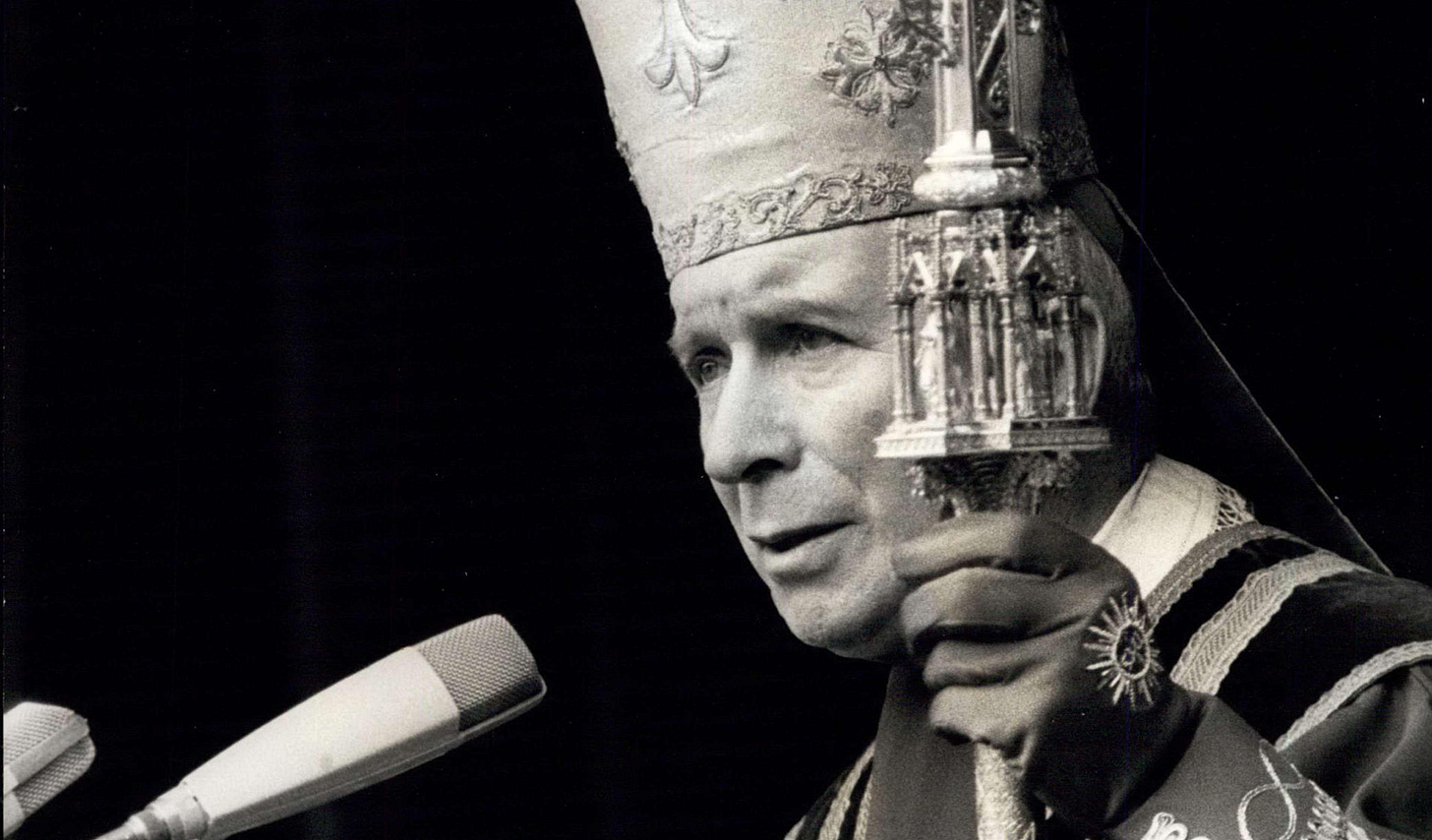Top 5 Christ the King articles
Check out our top five articles on the Christ the King and the importance of the encyclical Quas Primas, on the 'social kingship' of Our Lord Jesus Christ.

Check out our top five articles on the Christ the King and the importance of the encyclical Quas Primas, on the ‘social kingship’ of Our Lord Jesus Christ.
Christ the King – Encyclical and Feast
The last Sunday of October marks the feast of Christ the King, deliberately placed there by Pope Pius XI in order to precede the feast of All Saints.
The feast was established in 1925, in his encyclical Quas Primas. The first celebration of the feast took place in October 1926.
Both the feast and the encyclical were explicitly focused on the social Kingship of Christ – as opposed to the spiritual Kingship which we certainly exercises over the hearts of men, and the eschatological Kingship that will be definitively established at the end of time.
This is because both feast and encyclical were intended to address a specific evil, namely the dechristianisation and secularisation of society.
While it is true that the most effective agents for re-establishing Christ’s reign in society are those who have most fully allowed him to reign over their hearts, these two aspects of his Kingship are not mutually exclusive. Nor can they be conflated, or one subsumed into the other.
Perhaps there are some who focus on the social aspect of Christ’s Kingship at the expense of their spiritual life. It is certain that no-one will be saved unless Christ is King over their hearts and souls, and without worshipping him with the theological virtues of faith, hope and charity. In addition, as suggested above, such persons will be ineffective tools for advancing the reign of Our Lord.
But an over-emphasis on the social aspect of Christ’s reign would hardly seem to be the more common problem amongst serious Catholics today. On the contrary, many are “black-pilled” – debilitated by a sense of despair about the social order – and thus retreating from the sphere that is proper to them, in order to focus on what they believe to be the good of their souls.
The vacuum they leave is filled by the enemies of Christ the King.
In fact, the good of our souls is tied up with our state of life, and the sphere that is proper to us – namely, the world. Further, even aside from being a matter of justice towards God’s own rights, the reign of Christ over society is itself a powerful means of increasing his reign over the souls of men.
It does not seem to be true that one must already be a saint before – for example – standing for local or national elections, or engaging in forms of social or political action for the common good and the reign of Our Lord. Such a requirement might even appear to empty the encyclical of its very raison d’être – which was, after all, primarily about the social questions of our time.
In honour of this Feast, and in particular the centenary of the encyclical, we are presenting a curated selection of our favourite articles on Christ the King – followed by a few book recommendations.
It goes without saying, however, that the chief text to study on this matter is Pius XI’s encyclical Quas Primas itself.
Top Five Christ the King Articles

FIRST ARTICLE: ‘Christ is King’—Christendom and Religious Liberty
What are the feast and the encyclical all about – and how was the meaning of the feast changed following Vatican II?
And what effect did those changes have on the belief of Catholics since then?
This article was first written in 2020, with a greater focus on the lockdowns of that period, and has been reworked into its current shape on several occasions.
SECOND ARTICLE: Enthronement of the Sacred Heart of Christ the King, the antidote society needs
While many have heard about the practice of the enthronement of the Sacred Heart in the home, fewer know its intimate connection with the feast and the Social Kingship of Christ.
This devotion, propagated by Fr Mateo Crawley-Boevey, is directly ordered towards the doctrine expressed by Pius XI in the encyclical.
In this article, the great anti-modernist Cardinal Billot expresses his approval and understanding of the matter.
THIRD ARTICLE: Did Vatican II betray ‘Christ the King’? (Podcast)
Earlier in the year, S.D. Wright from The WM Review joined Theo Howard on The Two Cities Podcast.
We discussed the doctrine of the social reign of Christ, and how our King was betrayed following Vatican II – with special emphasis on the 2020 lockdowns as the apotheosis of that grotesque treason – and how it formed the central plank of Archbishop Lefebvre’s opposition to the Council.

FOURTH ARTICLE: St Thomas Becket died for the liberty of the Church—not for religious liberty (Dom Prosper Guéranger, with commentary)
‘The Social Kingship of Christ’ is a kind of synecdoche, which puts a divine-human face to a set of interrelated doctrines and truths.
One central doctrine is that of the liberty of the Church. In this article, we see Dom Prosper Guéranger’s exposition of this truth, in relation to the life and death of St Thomas Becket of Canterbury.
The other side of this is the error of religious liberty. Today, this is sometimes conflated with the liberty of the Church, but the two are as distinct as night is from day. The second part of this fourth article addresses this question, and its adoption in Vatican II’s Dignitatis Humanae.
Following widespread outrage at blasphemous events organised by Satanists in the USA, we expanded and developed this second part in the articles below:
How far does Vatican II’s ‘right to religious liberty’ extend?
Linking Satanism with religious liberty triggered some outrage—here’s why

FIFTH ARTICLE: Why did the priests tell Pilate that Jesus claimed to be King?
The Gospel for the Feast of Christ the King presents Our Lord declaring his kingship before Pilate, and showing what kind of King he really is.
In this article, the first of a mini-series of three parts, Fr Henry James Coleridge SJ explains the encounter and what it means for us.
BONUS ARTICLE: Archbishop Lefebvre and the Social Kingship of Christ

One of Lefebvre’s most famous books was They Have Uncrowned Him. The “uncrowning” of Christ the King – manifested particularly in the acceptance of the liberal doctrine of religious liberty following Vatican II – was a constant theme of Archbishop Marcel Lefebvre throughout his life.
For him, the modern crisis in the Church begins and ends with the doctrine of the social kingship of Christ.
This is why he said the following to Cardinal Ratzinger, in the negotiations that led up to the 1988 episcopal consecrations:
“Eminence, even if you give us everything—a bishop, some autonomy from the bishops, the 1962 liturgy, allow us to continue our seminaries—we cannot work together because we are going in different directions. You are working to dechristianize society and the Church, and we are working to Christianize them.
“For us, our Lord Jesus Christ is everything, He is our life. The Church is our Lord Jesus Christ; the priest is another Christ; the Mass is the triumph of Jesus Christ on the cross; in our seminaries everything tends towards the reign of our Lord Jesus Christ. But you! You are doing the opposite: you have just wanted to prove to me that our Lord Jesus Christ cannot, and must not, reign over society.”
(Bishop Tissier de Mallerais’ biography Marcel Lefebvre, p. 548)
(Let us note that we cannot accept the Archbishop’s phrase “Rome has lost the faith, Rome is in apostasy” in its literal sense. We hope, and assume, that he did not mean it in such a sense – but was rather referring to “the Vatican” or the men occupying the buildings in Rome.)
Soon after the 1988 episcopal consecrations, Archbishop Lefebvre reaffirmed the same ideas as his final position with regards to the Vatican the following in an interview:
“We do not have the same outlook on a reconciliation. Cardinal Ratzinger sees it as reducing us, bringing us back to Vatican II. We see it as a return of Rome to Tradition. We don’t agree; it is a dialogue of death. I can’t speak much of the future, mine is behind me, but if I live a little while, supposing that Rome calls for a renewed dialogue, then, I will put conditions. I shall not accept being in the position where I was put during the dialogue. No more.
“I will place the discussion at the doctrinal level: ‘Do you agree with the great encyclicals of all the popes who preceded you? Do you agree with Quanta Cura of Pius IX, Immortale Dei and Libertas of Leo XIII, Pascendi Gregis of Pius X, Quas Primas of Pius XI, Humani Generis of Pius XII? Are you in full communion with these Popes and their teachings? Do you still accept the entire Anti-Modernist Oath? Are you in favor of the social reign of Our Lord Jesus Christ? If you do not accept the doctrine of your predecessors, it is useless to talk! As long as you do not accept the correction of the Council, in consideration of the doctrine of these Popes, your predecessors, no dialogue is possible. It is useless.’
“Thus, the positions will be clear.
“The stakes are not small. We are not content when they say to us, “You may say the traditional Mass, but you must accept the Council.” What opposes us is doctrine; it is clear.”
To that end, our “bonus article” for this selection is the following interviews from Archbishop Lefebvre’s post-consecration years, in which he addresses the importance of this doctrine, along with several other important matters:
Archbishop Marcel Lefebvre: ‘A Few Months after the Consecrations’
Archbishop Marcel Lefebvre: ‘Two Years after the Consecrations’
Recommended Reading
The following books address topics relevant to the Social Kingship of Christ and the right ordering of society along Catholic or natural law principles:
Papal Teachings – The Lay Apostolate
Pope Leo XIII – The Great Encyclicals: Volume One—The Social Letters
Fr Edward Cahill – Framework of a Christian State
Fr Paul Glenn – Sociology
Fr Mateo Crawley-Boevey – Jesus, King of Love (On the Enthronement of the Sacred Heart of Christ the King)
Archbishop Marcel Lefebvre – They Have Uncrowned Him
Archbishop Marcel Lefebvre – Religious Liberty Questioned
NB: As noted in the introduction, the doctrine of the Social Reign of Christ the King is distinct from that of his Kingship over our hearts.
The two cannot be conflated, and one cannot subsume the other.
For more on that spiritual Kingship, we encourage readers to consult our project Father Coleridge Reader. The following article sets out what this project is all about, and how we hope it can help Catholics today:
FINAL BONUS ARTICLE: The Manifesto of Father Coleridge Reader
HELP KEEP THE WM REVIEW ONLINE WITH WM+!
As we expand The WM Review we would like to keep providing free articles for everyone.
Our work takes a lot of time and effort to produce. If you have benefitted from it please do consider supporting us financially.
A subscription gets you access to our exclusive WM+ material, and helps ensure that we can keep writing and sharing free material for all.
You can see what readers are saying over at our Testimonials page.
(We make our WM+ material freely available to clergy, priests and seminarians upon request. Please subscribe and reply to the email if this applies to you.)
Subscribe to WM+ now to make sure you always receive our material. Thank you!


